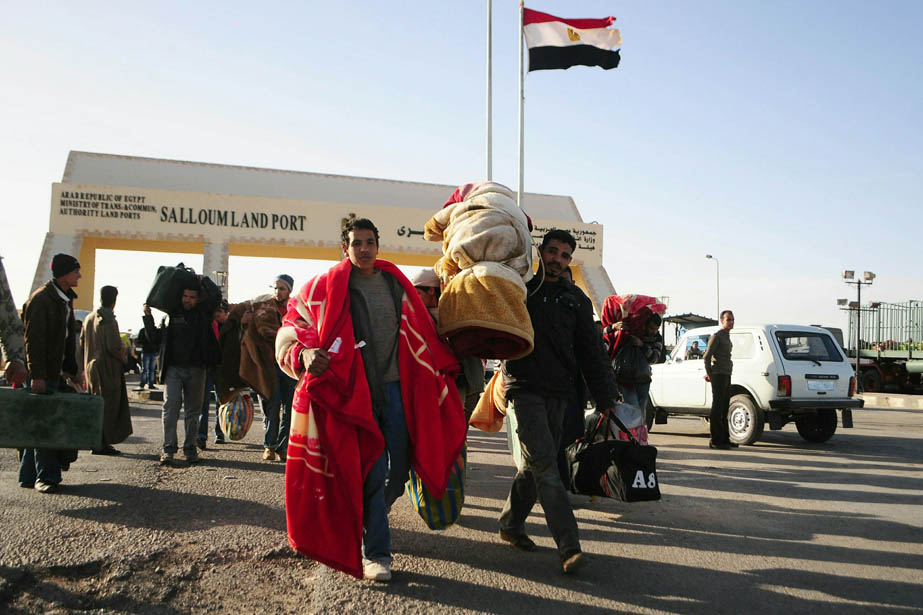Border guards arrested 91 individuals for attempting to illegally enter Libya through Egypt’s Western border near the border town of Salloum, state-owned media reported.
The border guard cooperated with security forces to apprehend the men when they were caught in a military area without authorisation.
Of the men, 90 are Egyptian, from various governorates, while one individual is Sudanese.
There have been several incidents of people trying to illegally enter their way into Libya, which serves as a hub for emigrants attempting to flee to Europe by sea.
Last month, 95 people were arrested for attempting to flee to the war-torn country. In May, over 300 attempted infiltrators were captured.
The Egyptian government banned its citizens from entering Libya earlier this year, due to the deteriorating security situation there.
Thousands of migrant Egyptians have returned to Egypt in recent months, fleeing the violence. The number of Egyptians returning increased following the beheading of 20 Egyptians in Libya by “Islamic State” affiliates.
The numbers, however, of those returning are a small fraction of Egyptian workers in Libya, who total around one million.
Many Egyptians have chosen to remain in Libya, despite the increasingly dangerous security situation. Even with the violence, Egyptians continue to try to enter the country either for work, or to escape to Europe.
In the latest developments from Libya, “Islamic State” fighters clashed with local militiamen allied with the Islamist Tripoli-based government, which is not recognised by the international community, in the city of Derna.
Libya descended into violence following the ouster and killing of long-time strong man Muammar Gaddafi by rebel forces.
The violence is largely due to a large number of armed tribes arising during the uprising against Gaddafi, and refusing to lay down their arms.
The fighting intensified following General Khalifa Haftar’s attempted coup, and declaration of war on all Islamist forces.
The war is mainly between the non-recognised Islamist government in the capital Tripoli, and the internationally recognised government, in the eastern city of Tobruk, due to the security situation. The government in Tobruk has aligned itself with Haftar, who now serves as its Minister of Defence, and his forces.
Another front, however, has recently opened in the fight, with “Islamic State” affiliated militants growing in numbers and targeting fighters from both of the already warring sides.




